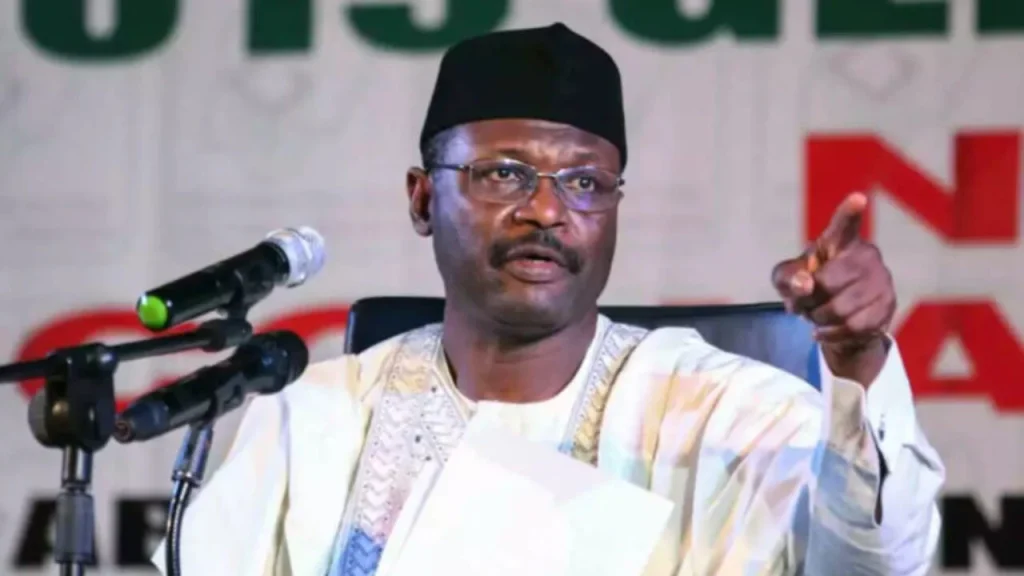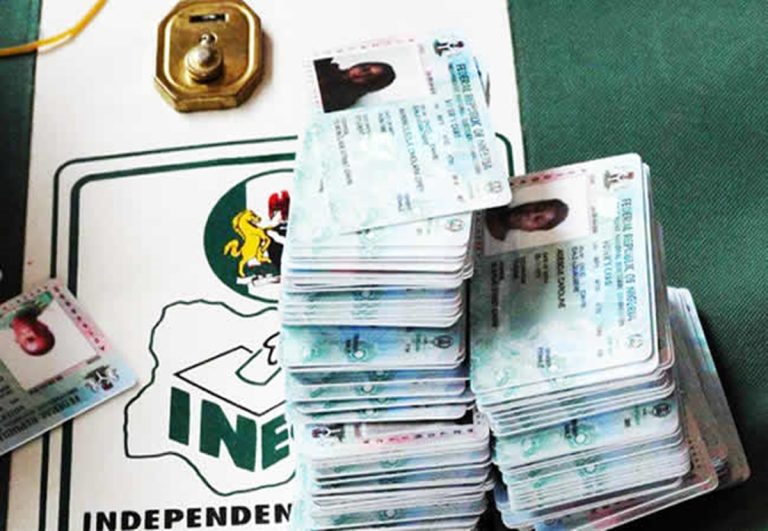The Independent National Electoral Commission (INEC) is proposing electoral reforms in 2025, including eliminating the use of Permanent Voter Cards (PVCs) and introducing Diaspora voting.
The proposals were discussed by the commission’s chairman, Prof. Mahmood Yakubu, with Resident Electoral Commissioners in Abuja on Thursday. They will be presented to the relevant committee soon.
“The commission also feels that with the implementation of the Bimodal Voter Authentication System, the use of permanent voters’ cards as the sole method of identification for voter authentication on election day should be reconsidered.
“Voters who already hold PVCs can continue to vote, but computer-generated slips provided by the commission or downloaded from their website will be sufficient for accreditation in the future. This will not only save money, but it will also eliminate the problems associated with PVC collecting and the wicked practice of buying up voters’ cards to disenfranchise them,” Yakubu said.
Additionally, the commission will increase its efforts to improve voter access and distribution to polling places. However, there are recommendations to support diaspora voting, the unbundling of the commission with the establishment of an electoral offences tribunal, and a separate agency to handle the registration and regulation of political parties. The commission supports these recommendations.
“With the conclusion of five major off-cycle governorship elections and nine out of 21 bye-elections since the 2023 general elections, this is the most appropriate time for us to begin the implementation of the recommendations arising from our review of the general elections,” INEC Chairman explained, referring to the 524-page review report on the 2023 general elections.

“The commission has identified 142 recommendations dealing with the general state of preparedness, voter management, voter education and public communication, political parties and candidate management, electoral operations and logistics management, election officials and personnel, partnership and collaboration, monitoring and supervision, election technology, voting and result management, election security, electoral offences, and the electoral legal framework.”
Of these, 86 require administrative action by the commission, 48 depend on coordination with stakeholders like security services and civil society organizations, and eight involve legislative modifications by the National Assembly.
Yakubu added, “Out of the 142 recommendations, 86 require administrative action by the commission. Because of your frontline role in implementing the recommendations, we must begin by engaging with our resident electoral commissioners.
“This is followed by 48 proposals for action from a wide range of stakeholders, including security agencies, mobile network operators, statutory bodies, political parties, transport unions, civil society organisations, and the media.
The commission will present eight recommendations for legislative action to the Joint Committee of the Senate and House of Representatives on Electoral Matters, which is currently deliberating on electoral reform. The Bimodal Voter Accreditation System has highlighted the need for a more streamlined process.
Yakubu also announced intentions to implement early and diaspora voting to accommodate residents who cannot vote at their registered polling locations, including INEC officials, security officers, and Nigerians living abroad.
Other significant areas of reform include cleaning up the voter registry in coordination with the National Identity Management Commission and strengthening partnerships with transport unions to ensure election materials are delivered on time.
The commission also intends to ramp up voter education activities to counteract misinformation and encourage marginalised groups to participate more.
“As a matter of urgency, the commission wants to create guidelines for cleaning up the voters’ register in coordination with other authorities such as the National Identity Management Commission and the National Population Commission. Other areas of reform include advocating for affirmative action to increase the participation of underrepresented groups and more rigorous voter education and public communication to counteract fake news and misinformation,” Yakubu said.


